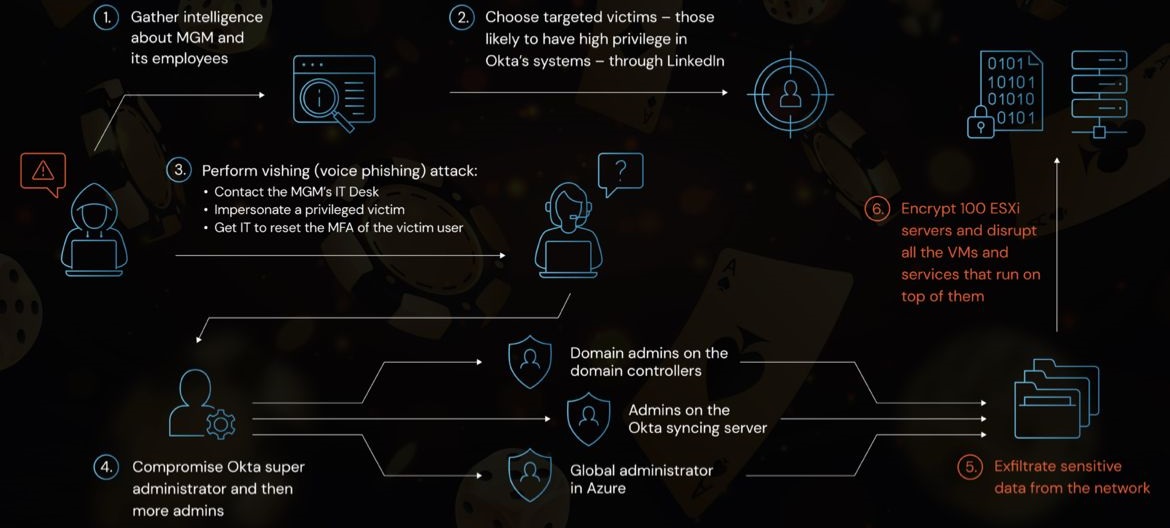
On July 27, 2023, First Republic Bank announced that it had experienced a data breach. The breach affected approximately 1.2 million customers, and the personal information of those customers may have been compromised.
The breach occurred on August 2, 2022, when an unauthorized actor accessed certain First Republic Bank network systems. During that period of access, the actor reviewed and/or removed certain private data from particular First Republic Bank computer systems. The information that was potentially compromised includes:
Names
Account types
Account numbers
Tax payer identification numbers
Social Security numbers
First Republic Bank is notifying all affected customers of the breach, and is offering them free credit monitoring and identity theft protection services. The bank is also working with law enforcement to investigate the incident.
The impact of the First Republic Bank data breach is still being assessed. However, it is possible that the breach could lead to identity theft, fraud, and other financial crimes. Customers who have been affected by the breach should be on the lookout for signs of identity theft, such as unauthorized charges on their accounts or credit reports.
In the aftermath of the breach, First Republic Bank has taken steps to improve its security measures. The bank has implemented new security controls, and is conducting a review of its data security procedures. First Republic Bank is also working with its customers to help them protect their personal information.
What You Can You Do to Protect Yourself
If you are a First Republic Bank customer, here are some recommendations for you to protect yourself after the data breach:
Place a fraud alert on your credit report: This will make it more difficult for someone to open a new account in your name. You can place a fraud alert by calling 1-800-525-6285 or by visiting www.consumer.ftc.gov/articles/0155-credit-freeze.
Review your credit reports for any unauthorized activity: You can get a free copy of your credit reports from AnnualCreditReport.com once per year.
Consider freezing your credit reports: This will prevent anyone from opening new accounts in your name, even if they have your personal information. You can freeze your credit reports by contacting each of the three major credit bureaus: Equifax, Experian, and TransUnion.
Be careful about sharing your personal information online: Only share your personal information with websites that you trust.
Use strong passwords and change them regularly: Do not use the same password for multiple accounts.
Be aware of phishing scams: Phishing scams are emails or text messages that appear to be from a legitimate company, but are actually from scammers trying to steal your personal information. If you receive an email or text message that asks for your personal information, do not click on any links in the message and do not reply to the message. Instead, contact the company directly to verify the authenticity of the message.
By following these recommendations, you can help protect yourself from identity theft and other financial crimes.
What to Do If You Think You Have Been a Victim of Identity Theft
If you think you have been a victim of identity theft, there are a few things you can do:
Place a fraud alert on your credit report.
Review your credit reports for any unauthorized activity.
File a police report.
Contact your creditors and let them know that you have been a victim of identity theft.
Place a credit freeze on your credit reports.
Monitor your credit reports for any new activity.
If you have been a victim of identity theft, you should also contact the Federal Trade Commission (FTC). The FTC can help you take steps to protect your identity and recover from the financial losses you may have suffered. You can contact the FTC by visiting www.ftc.gov/idtheft or by calling 1-877-ID-THEFT (438-4338).
How to Prevent Future Data Breaches
There are a number of things that companies can do to prevent data breaches. These include:
Implementing strong security measures: This includes using strong passwords, encrypting data, and monitoring network traffic for suspicious activity.
Educating employees about data security: Employees should be trained on how to protect sensitive information and how to spot phishing scams.
Regularly testing and auditing security systems: This will help to identify any vulnerabilities that could be exploited by hackers.
By taking these steps, companies can help to protect their customers' personal information and prevent future data breaches.
Conclusion
In conclusion, the First Republic Bank data breach highlights the importance of data security and the potential risks customers face when their personal information is compromised. As a First Republic Bank customer, it is essential to take proactive measures to protect yourself from identity theft and fraud. Placing fraud alerts, reviewing credit reports, and being cautious with personal information online are crucial steps to safeguard your identity. Additionally, companies like First Republic Bank must continuously improve their security measures to prevent future data breaches and protect their customers' sensitive data. By working together, both customers and organizations can strengthen cybersecurity defenses and mitigate the risks posed by cyber threats.

